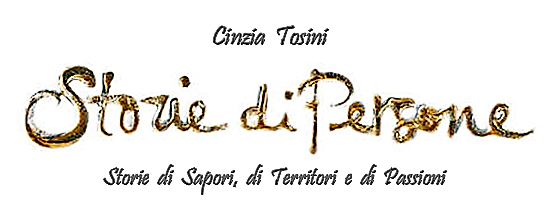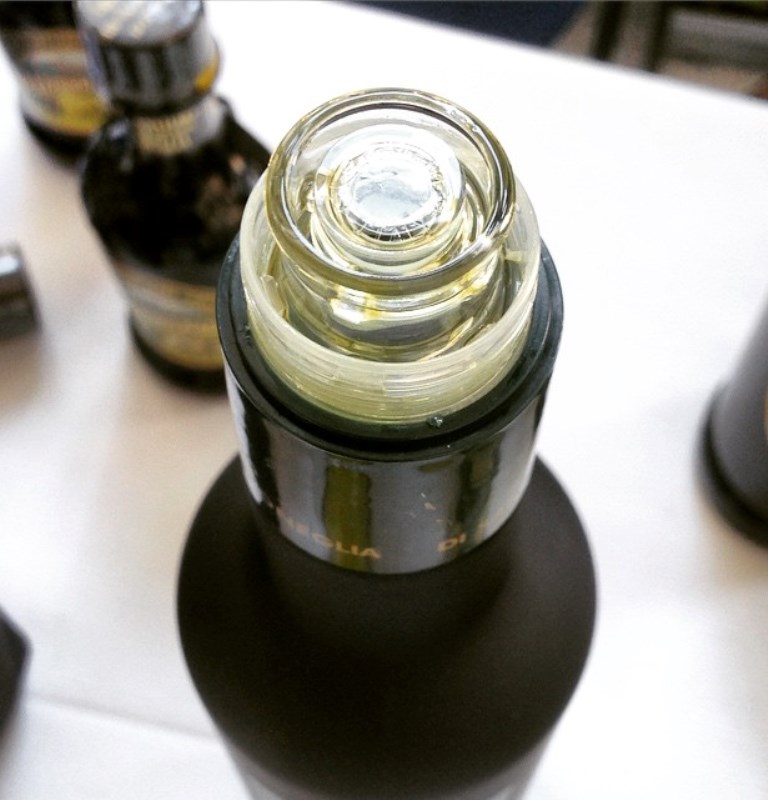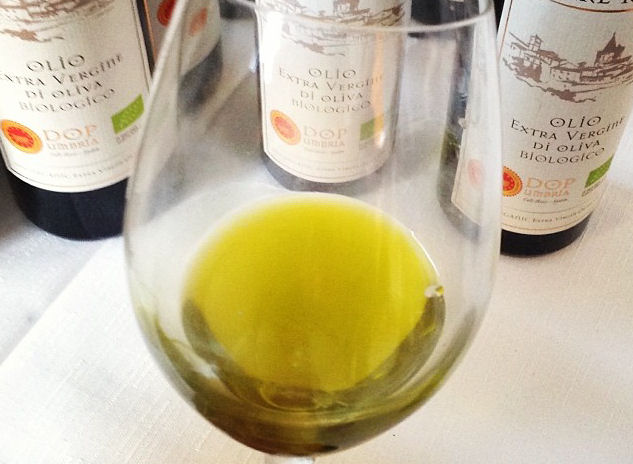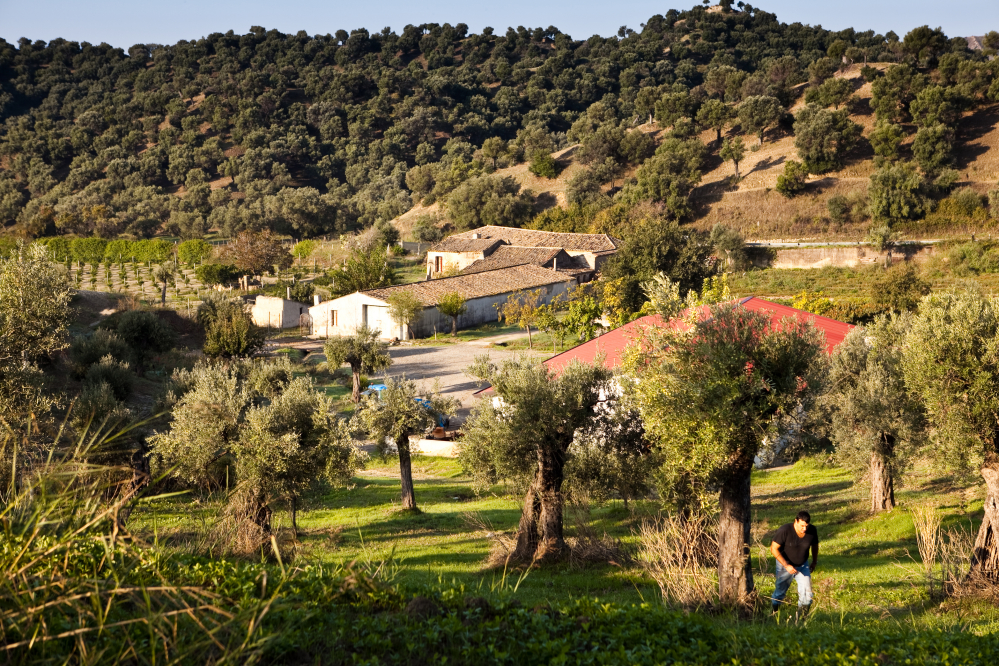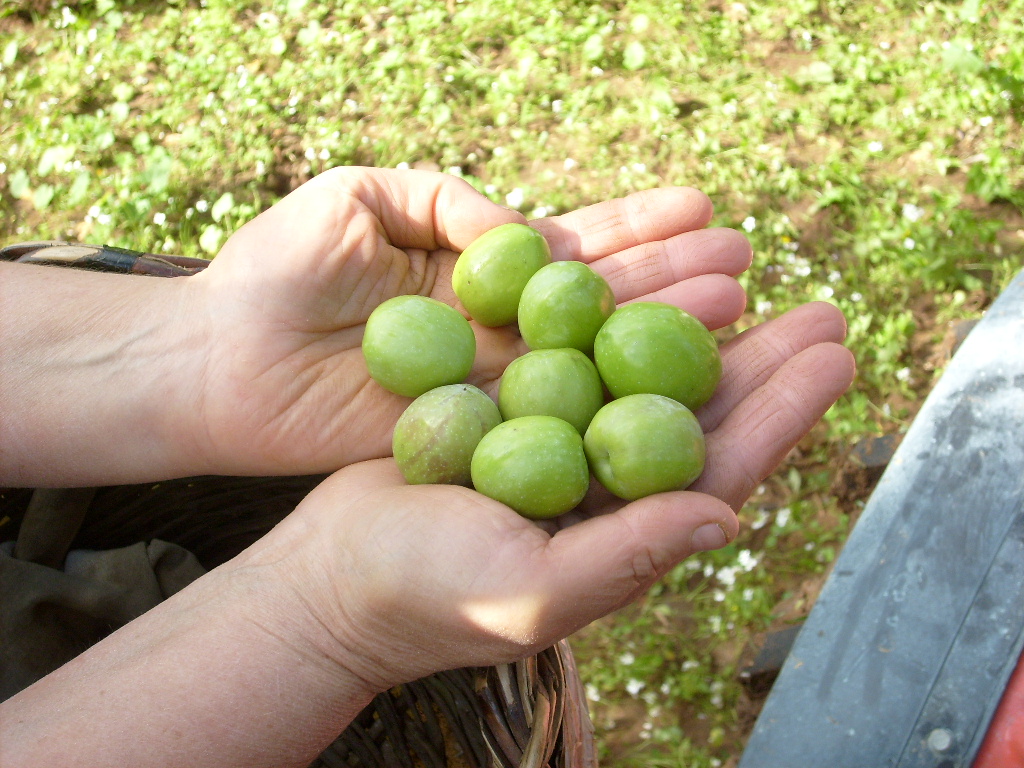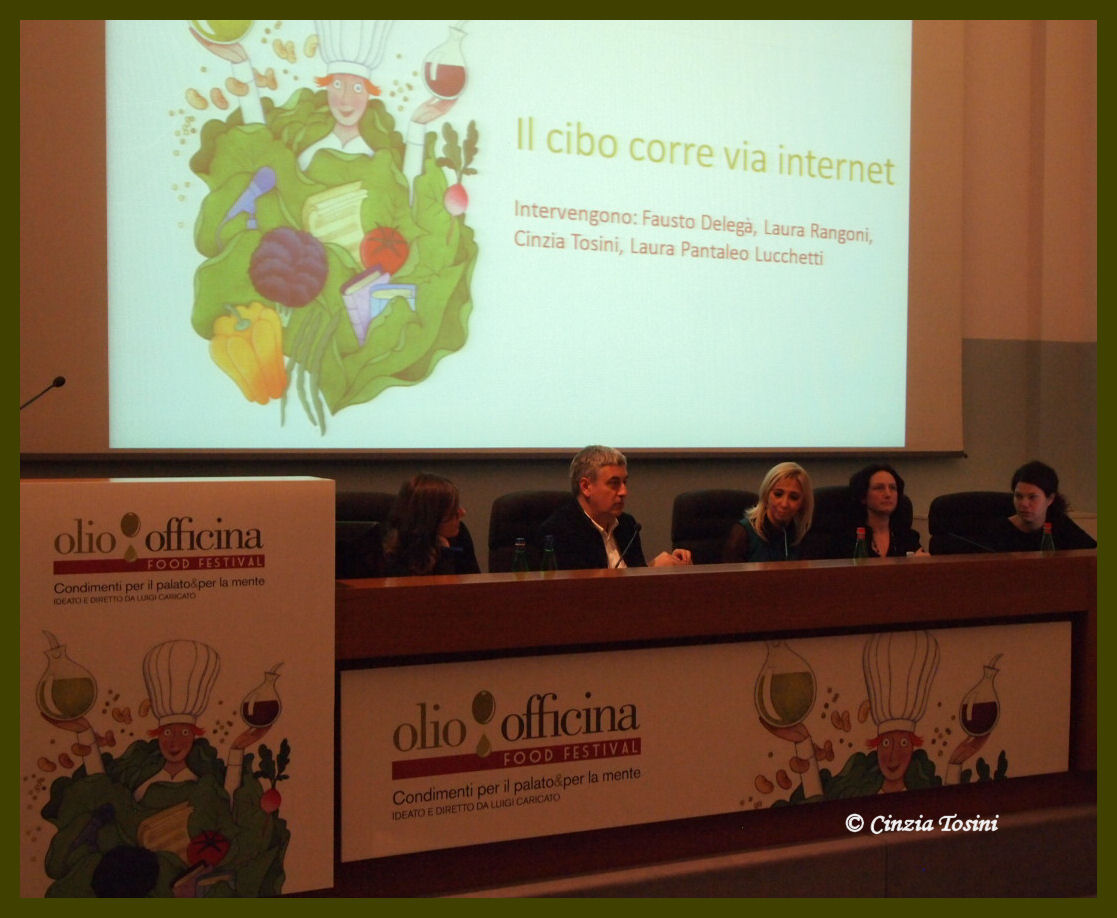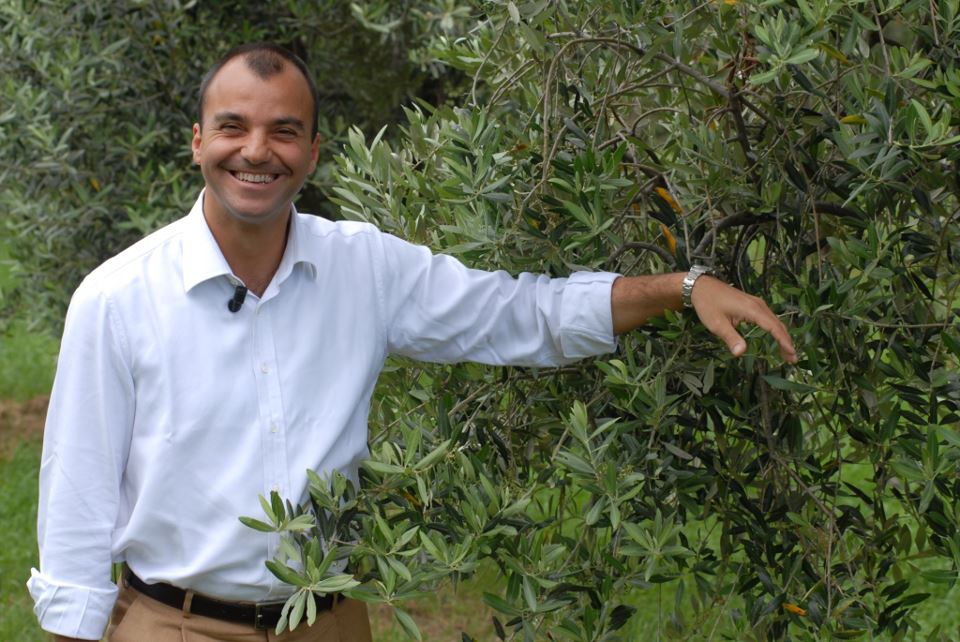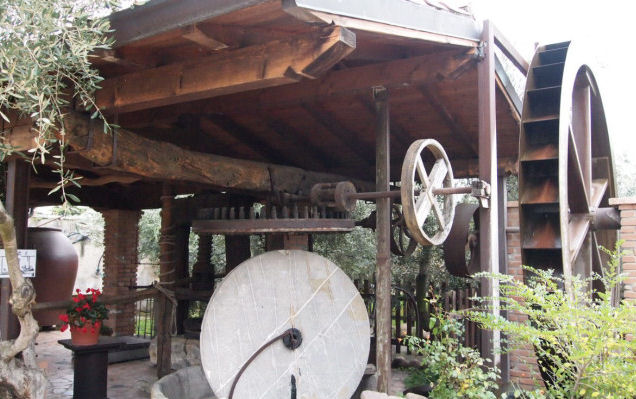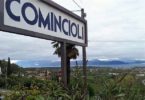.
Martina Franca in the province of Taranto, an elegant city with a rich history in the heart of Valle d'Itria. I met her walking along its streets and admiring the baroque style of its houses and palaces. A city that I was particularly struck by the care and the order in which it is held. "Qui Mangi Pane e barocco” intitolava nel giugno del ’97 la rivista “Bell’Italia” a proposito del suo centro storico.
Until yesterday I had those parts for a short holiday. Always unite business with pleasure by visiting the realities of agricultural lands that I visit. I was advised that one but unfortunately, because of my departure, I could not see: the historic mill “The Acropolis of Puglia”.
It did for me Vito Piepoli. I share with you his story.
The historic mill "The Acropolis of Puglia"
Vito Piepoli
The month of May is said mass in outer space in front of the entrance of the mill "The Acropolis of Puglia" in Martina Franca (Taranto), in business since 1889, Family Lucarella, where stands a beautiful statue of Our Lady of Odegitria . With this vision of blessing begins a visit to the ancient oil mill in the company of no less than one hundred twenty-two years of Beatrice Lucarella.
"He was my father's grandfather Domenico, Vincent then, the father of my father " Beatrice tells us vaguely of the top photo, placed immediately inside the mill family. Entering the temperature is changed, you're pretty cool. Being a hilly Martina, on the one hand and on the other you climb down ... so how crusher is buried. It is not very big, just as it was, in the center of town. And 'a semi FRANTOIO – ipogeo, like conformation and structure. E '"seeds" precisely because it is not placed in underground cavities but slightly below the road level. The production is cold with millstones and hydraulic presses.
The company is a destination for sightseeing and school groups for the rediscovery of ancient crafts and to learn about the different stages of production which the pressing, the gramolatura, la spremitura, storage and bottling. We continue to look inside the mill and allow ourselves to be attracted by signs and details a latere Principal activity. There are hooks on the ceiling.
Most of these hooks could have more functions or hang caciocavalli and sausages in general by season. The eye bolts were used instead to attack the animals to the chains. Per la staffa di cavallo c’è un duplice significato, the first is to mascot. The second concerns the use of the horse as a beast of 'round', or the quadruped used by the miller to turn the millstones.
Formerly, the place of transformation of olive oil was called “trappeto”, from the Latin trappetum, that is carved into the rock crusher that testify to the flourishing economy of the distant past, or even from the greek trapeo = pigiare o trepo = Twist or even trapetes which means mill by the number of mills that once were three, smaller diameter of the current, positioned at the bottom and a horse-drawn murgesi, Donkeys, typical of the area, or by oxen.
The production is done just as tradition commands, the first pressing of the olives under the grinder and then the dough is placed on fiscoli, shaped donuts, originally stuffed, that go on each other to compose the "tower" , ready for juice under the "press". Four presses in the mill and, to say our guide, durante il periodo di produzione sono necessarie almeno quattro – five people to carry on working.
To make a grinder and make at least a "tower" it takes at least three tons of olives and, secondo Beatrice, this year the year should be good enough for the collection in the family estates that are located in the countryside of Martina Franca and Crispiano. What actually affect much in terms of cost is the maintenance of the countryside. Especially difficult to recover because they try to maintain an average price of sale to the public even if it is essential for the consumer to understand that if you want to eat good and genuine quality product at a cost.
Beatrice reminds us that, switching to another product of the earth, excellent white wines are derived from grapes (Martina white) and red (Primitivo del Salento) typical of the Valle d'Itria. Even the wine market globally has become difficult. I happened to have a meeting with the Russian importers, dice Beatrice, asking to pay the bulk wine to fifty cents per liter (un'assurdità!).
Returning oil, the guide reassures us that the olives harvested and pressed at the mill family do not gather from the ground rather she herself tells us that there must be collected from the ground, because “the oil is a sponge in contact with the ground does nothing but absorb the humus, moisture and mold. I nostri terreni non sono trattati con diserbanti nocivi arando il terreno con l’uso di trattori per eliminare le erbacce e impastare il terreno. Harvesting is done mostly for extraction of the olives from the tree, but if we use the mechanical arm, the olives are immediately collected by networks. It 'a grind. Our main cultivar is characterized by olive "coratina" but also "leccina-Nociara" grafted in the same plant, the fruit of all trees. The harvest takes place during the months of November-December, although much depends on the type of climate that has taken place and the presence of abundant or scarce rainfall; pruning takes place shortly after the collection, with the system of pruning “.
The product is appreciated and exported to the U.S., in Eastern Europe, and in many European countries, especially in England and France. Italy applies the sale through the system of door to door or sent directly to families. Meanwhile, the tour continues and we see some underground tanks full of "yellow gold", where the smell of freshly pressed olive oil is felt even before the view, capturing a pleasant scent that intoxicates the lungs, even before the cup is dropped in the oil we approached the nose.
After one year of storage, we are told, the product remains definitely quality, however, is no longer the intense green, does not have that flavor that tingles, but maturing lose a little 'something, com’è natura. We know Vincent, the second of three sons, he also actively involved in the family business focusing on the sector marketing and sales. The crude oil filtration is carried out with method "in cotton wool", just as it was once, with cotton wool. More than a filtering is a real roughing.
The family Lucarella over to the mill has a farm that also produces other valuable food, for sale in a location situated in Piazza Umberto well as a line of natural cosmetics based on extra virgin olive oil. “We also produce a balsamic dressing, who has fifteen or twenty years of aging” – ha concluso Beatrice – that seems more than a tasting vinegar, a dessert wine and the cooked must of white grapes, the "mulled wine" from the particular consistency, product with the old disciplinary. And we do not just have to say goodbye and wish the mill "The Acropolis" long life, for the sake of our palate and the beauty of our skin.
